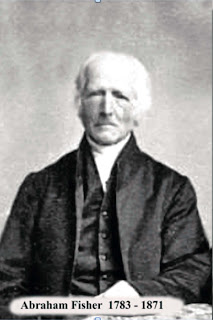On the 12th of April, 1867, a party of Irish- American Fenians left New
York for Ireland to assist the insurrection. They sailed in the Jacknell,
which was laden with arms. The principal leaders were Warren and
Costello, who had served as officers on the Federal side in the American
Civil War. On Easter Sunday, the 29th of April, they renamed their vessel
the Erin's Hope. They reached Sligo Bay on the 20th of May, and soon were
informed of the failure of the insurrection, but were advised by their friends to
try to land the arms on the southern coast. After evading for a long time the
Government gunboats, the officers of which had heard of their arrival,
they were at length obliged to land in the middle of June at Helvick Head,
near Dungarvan, owing to want of food and water. A coastguard lookout
observed their landing, and they were arrested. The Government authori-
ties did not for a long time know with certainty what their object was, but
when they had been some weeks in Kilmainham Gaol, Dublin, one of their
number named Buckley revealed all to the authorities, and they were tried
at the Dublin November Commission, 1867, along with some other prisoners
who had been engaged in the attempt in March. An important legal point
was raised on these trials. An American citizen, Nagle, was released.
Colonel John Warren, although a native of Cork, was a naturalized American
citizen. Captain Augustine Costello was in the same position. As citizens
of another country they demanded a mixed jury of British and American
citizens ; but this was refused to them, as the British law then maintained
that no British subject can divest himself of his allegiance. Although the
American Government refused to assist the prisoners, it was obliged to
maintain their contention, for the citizens of the United States are very
largely composed of former subjects of Great Britain and other European
countries. Ultimately Great Britain had to alter the law in this matter by
an Act passed in 1870, which provides that a subject may divest himself of
his allegiance. This "Warren and Costello Act" was passed owing to the
contention of these prisoners at their trial three years earlier. But the con-
tention did them little good at the time, for Colonel Warren and Captain
Costello were both convicted of treason felony and sentenced, the former to
fifteen and the latter to twelve years' penal servitude. At the same Com-
mission Halpin, who had been leader in the attempt at Tallaght, near
Dublin, was also sentenced for fifteen years. Corydon, when cross-examined
by Halpin, admitted that he expected a reward of two thousand pounds for
his treachery. But in these cases also the prisoners were released in a few
years owing to the exertions of the Amnesty Association. It was evidently
only just that some distinction should be drawn between the cases of men
of good character, whose only offence was that they had done the best, as
they believed, for their country, and that of men of bad character, whose
crimes admitted no such excuse.
Pictures and stories of interest about Ring, Dungarvan, County Waterford
Subscribe to:
Post Comments (Atom)
Anna Haslam and the Quakers of Piltown and Youghal
My god friend Mike Hackett who resides this side of Youghal Bridge is Youghl's foremost Historian. Mike has several books behind him And...

-
Saving the Oceans, one man’s commitment. ‘I want to give something back.’ By Eddie Cantwell This is the e...
-
Joshua William Strangman. A Quaker of Waterford and his connection with Ring fishermen. By Joan Johnson ...
-
As chronicled by Peig (Terry) Uí Réagáin sometime in the early 1980 ’ s. My thanks to to Seán O' Réagáin in the US, who is the son o...



No comments:
Post a Comment